Graduate Program Overview
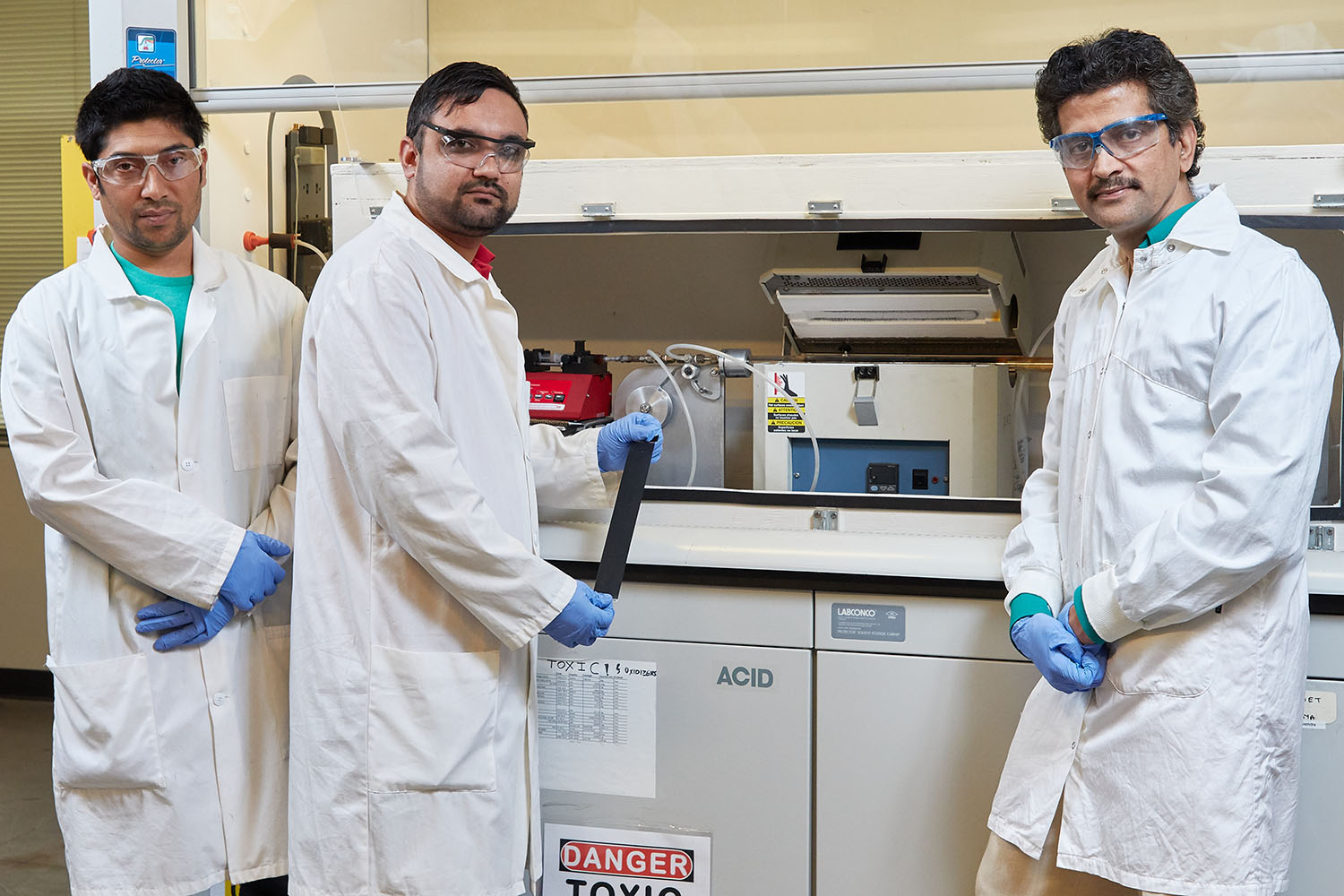 At Clemson, theorists and experimentalists explore, test and discover phenomena that provide evidence for novel and unified theories based on these physical laws. Clemson’s Department of Physics and Astronomy is internationally recognized for its experimental, computational and theoretical work in astronomical, atmospheric, biological, condensed matter and fundamental physics.
At Clemson, theorists and experimentalists explore, test and discover phenomena that provide evidence for novel and unified theories based on these physical laws. Clemson’s Department of Physics and Astronomy is internationally recognized for its experimental, computational and theoretical work in astronomical, atmospheric, biological, condensed matter and fundamental physics.
Forefront of Research
Graduate students in the Department of Physics and Astronomy are engaged at the forefront of research, conducted under the mentorship of our world-class faculty, and gain valuable teaching experience as well. While earning their degrees, graduate students receive fully funded research or teaching assistantships, including full tuition waivers. Doctoral candidates making adequate progress toward their degree are guaranteed five years of support, and master’s students are guaranteed two years of support, so long as funding remains available.
Diverse Students, Diverse Careers
Our students come from around the world, making diverse culture an important part of the graduate experience. Wherever they are from, our students enjoy Clemson’s outstanding surroundings, year-round mild climate and low cost of living. Our graduates take many career paths. Some join the faculty at research universities and teaching colleges around the country. Some take research positions at national laboratories and government agencies, including NASA and the Department of Energy. Others work for private companies in research and development or management.
The Clemson Difference
Research
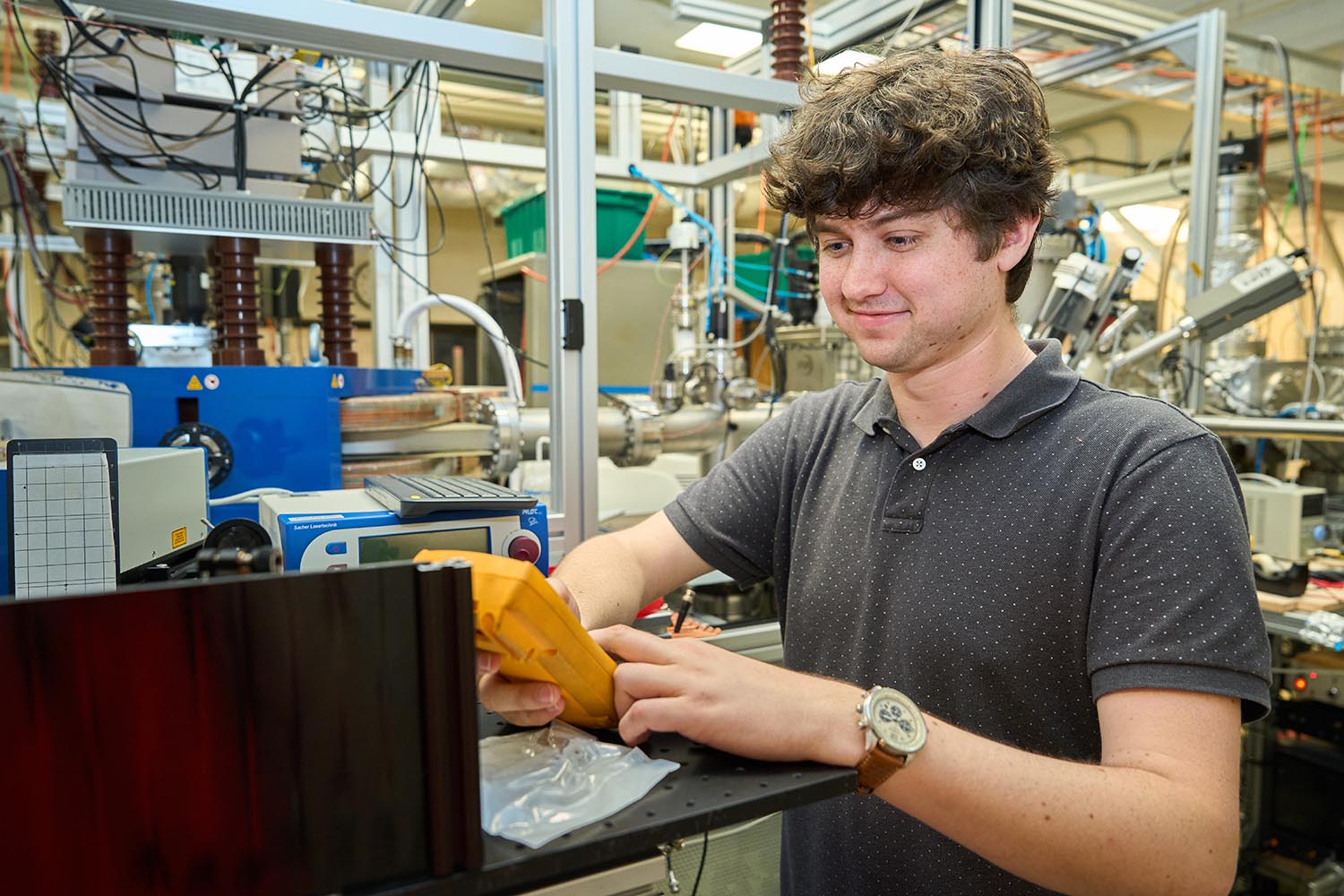
Research is a crucial facet of the Clemson University Department of Physics and Astronomy. In addition to fully equipped laboratories in Jordan Hall and at the Advanced Materials Research Laboratory, our faculty and students in astrophysics and atmospheric physics conduct research at locations that stretch from near the North Pole to the Southern Hemisphere.
Development
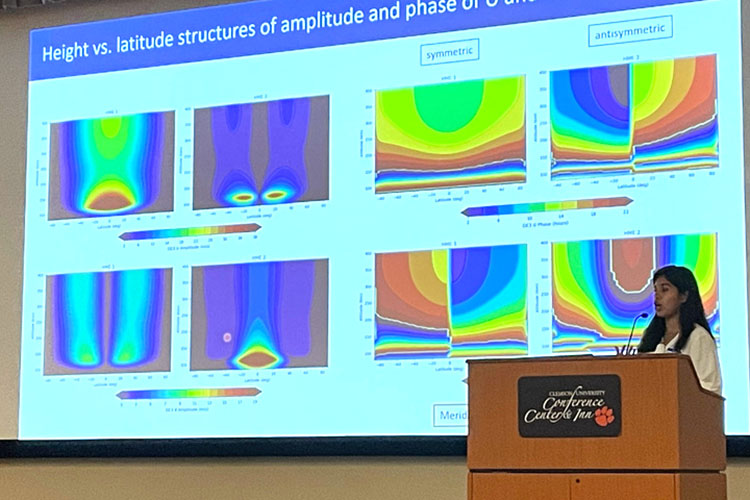
Whether writing a grant, presenting at a scientific conference, designing an experiment or teaching undergraduate students, communication skills are necessary for any scientist to flourish. Our faculty members train graduate students, passing along the skills they need to get the careers they want.
Community
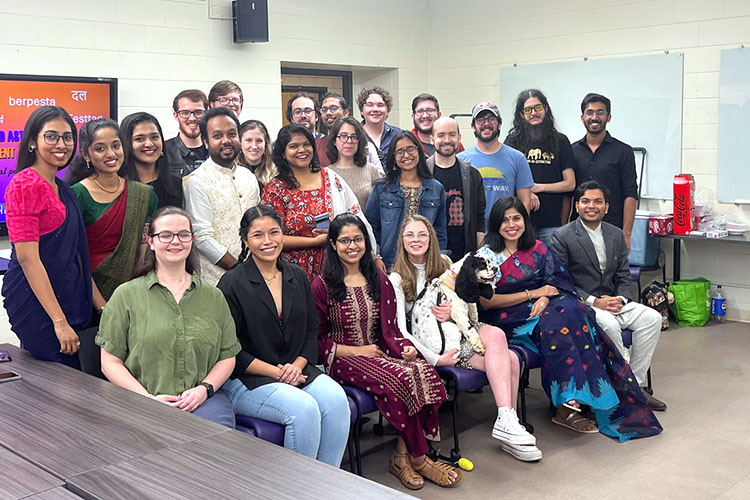
We recognize that the people you meet and the connections you make as a graduate student are often as important as your time in the lab. The Physics and Astronomy Graduate Student Organization exists to provide graduate students with professional development and social events to promote career development and community.
Graduate Degree Options
Physics
The department offers M.S. and Ph.D. options in physics. Graduate students in physics craft a plan of study that is geared toward the student’s interests. Both the M.S. and Ph.D. degrees allow for maximum flexibility, with coursework that encompasses the breadth and depth of physics — from the atom to massive galaxies.
Medical Biophysics
The department offers M.S. and Ph.D. options in medical biophysics. Graduate students in medical biophysics craft a plan of study that is geared toward the students’ interests. An online M.S. is available to provide a larger range of flexibility for students, expecially for those already working in the field.
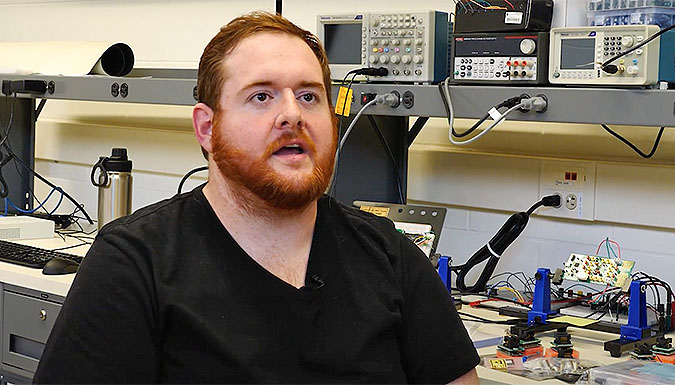
Why Choose Clemson?
Where Will Your Graduate Path Take You?
A degree in physics from the Department of Physics and Astronomy at Clemson University can set you on your path to the future; where that path leads — from space exploration to a greater understanding of the subatomic world — is up to you. In this brief video, meet faculty and graduate students, and hear their stories about why Clemson’s program could be the perfect fit for you.
Watch the VideoResources for Students
Current and Accepted Students
If you are a current graduate student, or have received acceptance to the graduate program, the following accordions offer information and resources that may be helpful.
-
Resources for Current Students
Current graduate students may find the following links containing department and university policies helpful:
-
Information for Accepted Students
After you have applied to Clemson, the status of your application for graduate study submitted through the Clemson University Graduate School can be checked online. If your status shows as accepted, this means you qualify for admission to the program. You will not officially be admitted to the graduate program until all final and official transcripts and test scores are received.
If you are accepted
After students are admitted, the Department of Physics and Astronomy makes all assistantship decisions. The Graduate School cannot tell you more about that status. It will typically take two more weeks before you receive official notification of an assistantship offer or if you are on the waiting list for an offer. If you are offered an assistantship, you must sign the letter and return it to accept the offer. All offers remain valid until April 15 (for admission to the fall semester) or Nov. 30 (for admission to the spring semester), after which they may be offered to other applicants. If you do not plan to accept our offer, please inform us as soon as possible so we may offer the position to another candidate. Note that fall classes begin in mid-August, and orientation for teaching assistants begins the first week of August. Plan to arrive in Clemson by the first day of orientation if you will be a teaching assistant for the fall semester. For the schedule for spring admissions, please contact the department.
-
Graduate Courses and Schedule
Department of Physics and Astronomy core graduate courses are offered every year and are taken by the large majority of our students in preparation for the written qualifying exam.
Fall term
- PHYS 8110: Methods of Theoretical Physics I
- PHYS 8210: Classical Mechanics I
- PHYS 9510: Quantum Mechanics I
Spring term
- PHYS 8150: Statistical Thermodynamics I (cross-listed with Mech Eng)
- PHYS 8410: Electrodynamics I
- PHYS 9520: Quantum Mechanics II
Our students also are required to take some electives, which can be from our department or (with permission of the student’s Ph.D. committee) from another department. We will offer these graduate electives on a two-year rotation beginning in the fall of 2020 (contingent upon sufficient demand).
Fall 2022, 2024 and even years thereafter
- ASTR 8300: Astrophysics 3: Galactic Astronomy *
- PHYS 8180: Cellular Biophysics
- PHYS 8250: Atmospheric Dynamics
- PHYS 9530: Quantum Field Theory
Spring 2023, 2025 and odd years thereafter
- ASTR 8400: Astrophysics 4: Cosmology *
- PHYS 8190: Computational Biophysics
- PHYS 8260: Ionospheric Physics
- PHYS 8510: Methods of Spectroscopy
- PHYS 8500: Atomic Physics
Fall 2023, 2025 and odd years thereafter
- ASTR 8100: Astrophysics 1: Radiation Processes and Measurements *
- PHYS 8170: Molecular Biophysics
- PHYS 8270: Measurement Techniques in Aeronomy
- PHYS 8450: Solid State Physics 1
- PHYS 9660: General Relativity
Spring 2022, 2024 and even years thereafter
- ASTR 8200: Astrophysics 2: Stellar Astrophysics *
- PHYS 8190: Computational Biophysics
- PHYS 8280: Atmospheric Tides and Planetary Waves
- PHYS 8460: Solid State Physics 2
- PHYS 8550: Physics of Nuclear Medicine
* The astrophysics sequence can be taken in any order
-
Graduate School: Find Out More
For useful insights on beginning your journey as a graduate student at Clemson University—and to get a firsthand look at what graduate life is really like, visit the GSO Prospective Student's Resource page.
For general information about the Clemson University Graduate School, as well as the most current degree requirements and course listings, visit the Records and Registration page.
Prospective Students
The Clemson University Department of Physics and Astronomy offers programs of study leading to Master of Science and doctorate degrees. Each degree program has specific requirements in terms of coursework, student seminars, qualifying exams (doctorate only) and a thesis (Master of Science) or dissertation (doctorate) that presents the results of an original research project. Although it is possible to earn a doctorate without earning an master’s degree on the way, the most common path is for students pursuing a doctorate to earn the master’s degree along the way — en route, in graduate school parlance.
Graduate Student Financial Support
There are several types of financial support available for students in the graduate programs, including teaching assistantships, research assistantships, and fellowships. Each type of support is awarded to qualified students on a competitive basis. Continuation of all support is based upon satisfactory progress towards a degree.
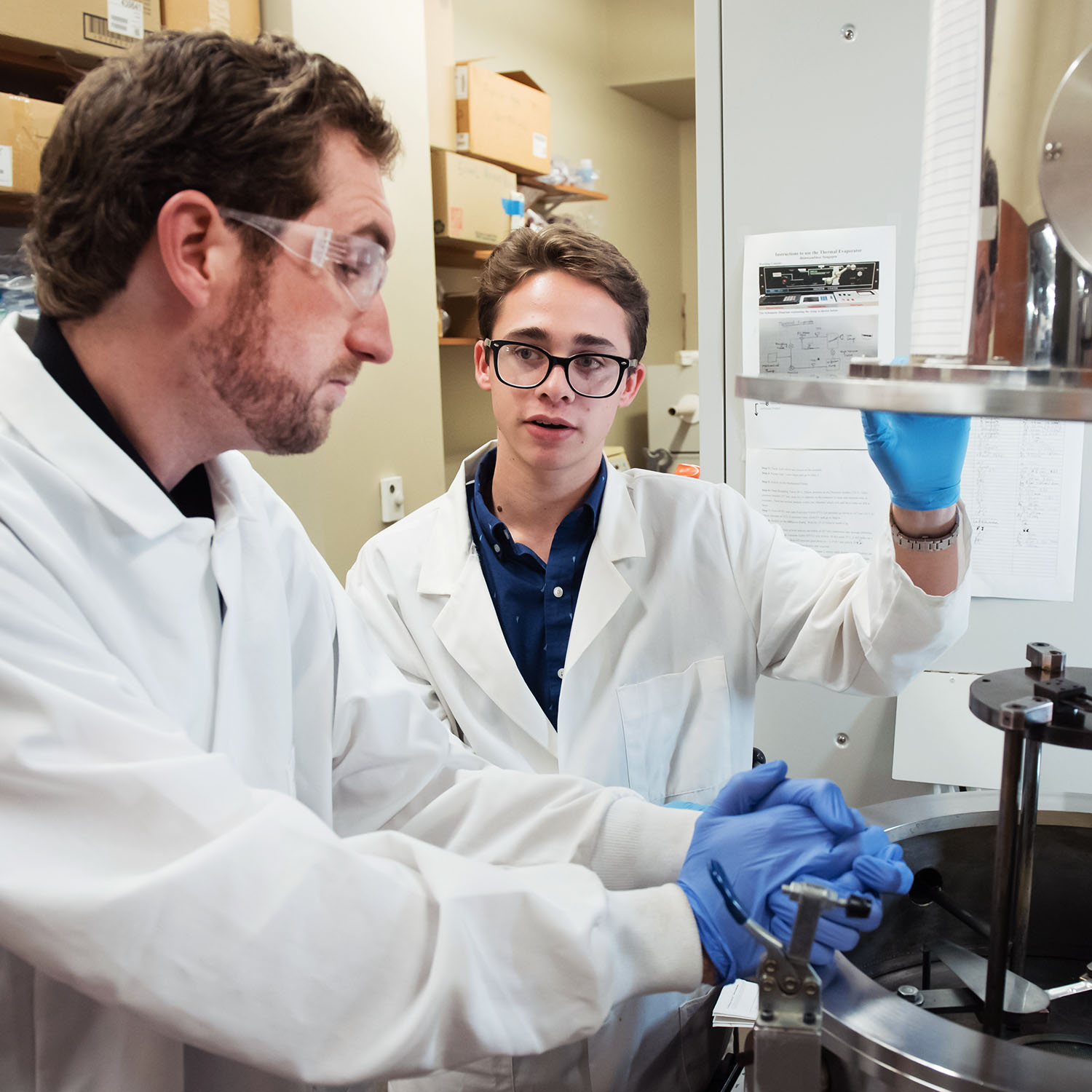 Graduate teaching assistantships are the most common type of financial support for incoming graduate students. The duties usually involve teaching two to three undergraduate labs per semester and/or grading assignments for undergraduate courses. No specific teaching duties are assigned in summer, but students are expected, after their first year, to have found a research group in which they intend to work. For 2023–2024, teaching assistantships are expected to include a stipend of $24,500 for the academic year and include a waiver of tuition. Students may also earn more in the summer if working on a research project or teaching.
Graduate teaching assistantships are the most common type of financial support for incoming graduate students. The duties usually involve teaching two to three undergraduate labs per semester and/or grading assignments for undergraduate courses. No specific teaching duties are assigned in summer, but students are expected, after their first year, to have found a research group in which they intend to work. For 2023–2024, teaching assistantships are expected to include a stipend of $24,500 for the academic year and include a waiver of tuition. Students may also earn more in the summer if working on a research project or teaching.
Graduate research assistantships are available to graduate students through research grants and contracts held by faculty members in the department. They are awarded based on availability and the qualifications of the recipients and may supplement or replace GTA funds.
Fellowships are awarded by the Clemson University Graduate School. Several are awarded. The department nominates candidates who compete with other nominees throughout the university. Fellowships require no explicit duties and allow for more time to concentrate on courses and research.
